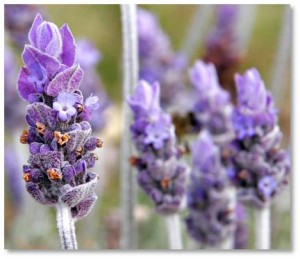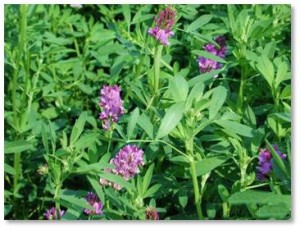Friday Author: Seth Kaplan
As promised, here is the second installment of my thoughts on how Laura Landro and The Wall Street Journal delivered information and opinions to its readers about the potential harmful interactions of nutritional supplements with prescription drugs. Depending on how much I need to say about the remaining eight supplements in the article, I may write a third installment, too. Also, I want to expand upon the information I provided about turmeric/curcumin last week, as I have learned some new information in the interim.
Remember: Regardless of information provided here or opinions expressed, you should always inform your doctor about supplements you plan to take, especially if you already take prescription medications.
Lavender
 Interested in history? The British Pharmacopoeia recognized lavender, which it called “Palsy Drops,” for over 200 years as a treatment for muscle spasms, nervousness, and headaches. Today, lavender is still used as a headache remedy, thanks to two ingredients that raise the threshold for pain and inhibit hormonal reactions that create pain and inflammation.
Interested in history? The British Pharmacopoeia recognized lavender, which it called “Palsy Drops,” for over 200 years as a treatment for muscle spasms, nervousness, and headaches. Today, lavender is still used as a headache remedy, thanks to two ingredients that raise the threshold for pain and inhibit hormonal reactions that create pain and inflammation.
Ms. Landro lists as “purported” benefits help with anxiety, depression, insomnia, pain, and spasms. As “unintended consequences,” she notes that lavender “may enhance the effects of the sedatives and increase the risk of bleeding with anticoagulants.”
Lavender offers real benefit to disturbed persons in treatment facilities. For example, researchers found that medicated patients in a nursing home did not sleep as long or as soundly as those in a sleeping room perfumed with lavender. For patients with mild to moderate depression, a tincture of lavender plus imipramine helped them more than either substance alone. Topically applied, lavender helps to reduce burn pain quickly and without scarring. Lavender tea is a long-time remedy for gas, bloating, and upset stomachs. However, never ingest lavender oil, only tea. Also, lavender is my wife’s favorite scent. What could be bad?
St. John’s Wort
Ms. Landro says St. John’s Wort relieves depression, fatigue, insomnia, and pain, while possibly reducing the effectiveness of contraceptives, HIV/AIDS drugs, and other anti-rejection medications. On the Truth Meter, this would be Mostly True.
 The key fact to remember about St. John’s Wort is that, of all herbs used therapeutically, it reacts with more allopathic medicines than any other. So, while St. John’s Wort has antibacterial, anti-inflammatory, antiviral, and pain-reducing properties, you should never take it without consulting with your physician. You may be surprised at the brevity here, but St. John’s Wort has been studied more than most other herbal supplements, and more is known about it.
The key fact to remember about St. John’s Wort is that, of all herbs used therapeutically, it reacts with more allopathic medicines than any other. So, while St. John’s Wort has antibacterial, anti-inflammatory, antiviral, and pain-reducing properties, you should never take it without consulting with your physician. You may be surprised at the brevity here, but St. John’s Wort has been studied more than most other herbal supplements, and more is known about it.
[Under the heading of scare mongering: In The Wall Street Journal article, some doctors are quoted reporting adverse effects like post-operative hemorrhage associated with garlic and blanket suspension of all supplements at least two weeks before surgery. This is knee-jerk CYA, offered by people who do not know much, if anything, about supplements.]
Alfalfa
The @WSJ says alfalfa can heal burns and cold sores and help treat colitis and diabetes. However, it may interfere with contraceptives and hormonal therapy. More can be said.
 The Arabs (alfalfa originated in the Middle East) called alfalfa the “father of all foods.” They were on to something. Alfalfa contains calcium, magnesium, potassium, and carotene. Depending on how it is processed—tablet, crushed leaves, etc.—it contains many other nutrients.
The Arabs (alfalfa originated in the Middle East) called alfalfa the “father of all foods.” They were on to something. Alfalfa contains calcium, magnesium, potassium, and carotene. Depending on how it is processed—tablet, crushed leaves, etc.—it contains many other nutrients.
Alfalfa has shown benefit in controlling lipids, boosting the immune system, reducing the effect of a woman’s hormones (which can help treat endometriosis), help manage fungal infections, reduce the severity of menopausal symptoms, and help treat osteoporosis (especially to replace Vitamin K2, which prescription drugs deplete) and ulcers.
However, never use alfalfa as a primary treatment for any condition; it is a support only. It reduces the effectiveness of immunosuppressive drugs and anti-rejection medications.
With garlic, magnesium, red clover, saw palmetto, and fenugreek yet to come, in addition to the new information about turmeric, tune in next week for my next installment.
And, of course, should you have any comments, questions, or requests for other topics, please post responses. I shall read every one.
